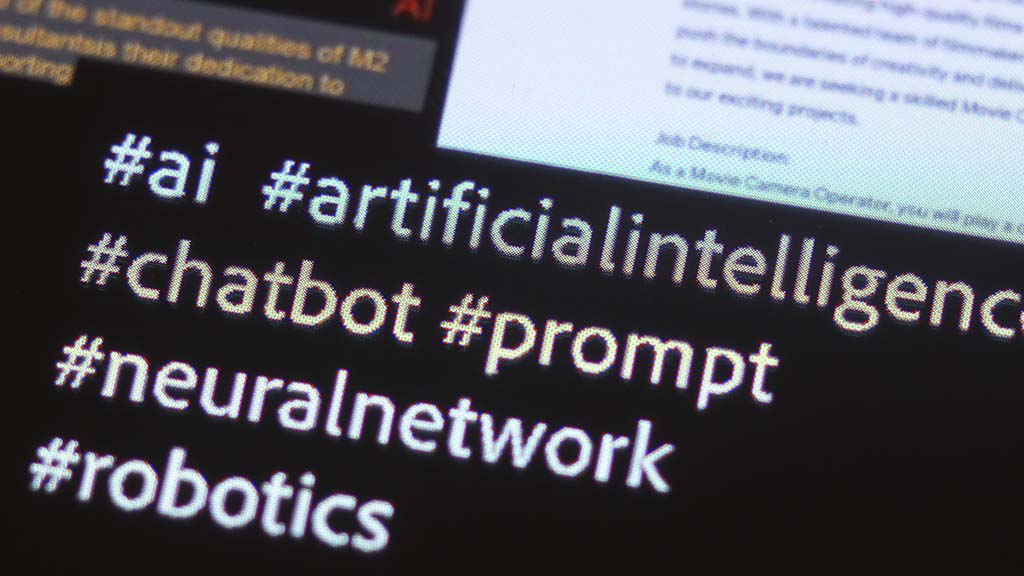A Media Technologist’s Guide to Evolving Skills
Programming languages, prompt engineering and data skills are an important part of the AI future

Media technologists need to consider how to adapt to a future where artificial intelligence (AI) plays a larger role. What skills will the average media engineer require in the future? This is an important question for technology management, as they must determine how to upskill their existing workforce while recruiting new team members aligned with that future.
There are various media-specific technology topics to consider for future development, such as high dynamic range (HDR), new codecs and new methods of signal distribution. Additionally, there are fundamental skills to develop in both infrastructure and software development.
Basic Skills
Most importantly, the media engineer of the present has become a specific type of information technology (IT) professional. This has been evolving for more than 20 years. At this point it’s fair to say that a media engineer cannot be successful in their work without a professional level set of IT skills. While there are some cultural differences between traditional IT and media IT, media professionals are now expected to understand the basics of networking, storage and other core infrastructure.

In fact, it is critical that IT infrastructure skills be at an advanced level in media engineers. Media engineers should possess advanced IP networking skills and should seek significant design and build experience of complex networks, including SMPTE ST 2110 environments. Furthermore, it is important to have advanced expertise in on-prem and cloud storage and compute systems.
Knowing what it takes to at least build a small data center in your facility that can process high data rate live video should be the goal for anyone with more than a few years’ experience. Additionally, every media technology professional should possess at least one basic architect-level certification from a major cloud provider. Knowing how to relatively quickly spin up workflows in a cloud environment will be a skill in high demand going forward that is even more critical in AI workflows.
Next Generation
How does AI add to all the above basic skills? To discuss this, it is important to make some reasonable predictions on the near to mid-term future of AI in media. I think it is valuable to think of AI as essentially a new generation of software-based automation. It is my opinion that AI—as a concept—will fade into the background in media and will be embedded in tools that perform media functions (editing, visual effects, etc.) that we care about. In fact, this has been the case for more than a decade in the industry.
In fact, I expect the evolution of AI to follow a path already treaded by software systems in general in our industry. At first, there were large monolithic systems that didn’t interchange very well with other companies’ products except in finished and flat content—you would classically need to buy into a given vendor’s entire suite of products for it all to work together. This is the stage AI is at now. Today, most AI image generation systems output only a final image in a way analogous to the “print to tape” workflows of the 1990s.
The professional video industry's #1 source for news, trends and product and tech information. Sign up below.
In the future, I would expect standards for interchange and control to lead to the next evolutionary step, which is AI systems with more specialized capabilities that can pass components or data or instructions to another AI to handle. This is similar to the technology we had in the 2000s when we really began networking products from different vendors into single workflows.
Finally, we then will go through a set of phases like the “microservices” phase of the 2010s in which these AI models get very specialized and smart and reliable about doing a small scope of work and get orchestrated into agile workflows, perhaps even by AI-based orchestration engines.
If this future is accurate, then the skill sets that will be needed to be most effective in understanding, building, troubleshooting and managing these technologies in the future are the software-oriented skill sets seen in developers today.
Programming, Data and Prompts
It is important to develop a strong skillset in software development in at least one programming language. Doing so develops the logic and systems-flow skills that will be a part of systems designs that are heavily software-based. Python is very popular now and contains all the elements found in many languages, and so would be a good choice for beginners.
While there are some cultural differences between traditional IT and media IT, media professionals are now expected to understand the basics of networking, storage and other core infrastructure.”
The fact that AI Large Language Models (LLMs) are generating code based on prompts does not take away from the need to learn a programming language. There are potentially significant limitations on LLM systems, which mean that for some time it will be necessary to understand code to debug and deploy quality systems.
Data-related skills are another area that will be critical in an AI-enabled future. A media engineer will need to be a data engineer/scientist too, which means gaining a fundamental understanding of databases and data structures as well as the methods to extract data such as Structured Query Language (SQL) and many others. Particularly relevant to AI are technologies such as vector databases and it may also be wise to refresh your knowledge of linear algebra as it is core to many generative AI technologies. Understanding the basics of statistics will also be important, including probabilities and other concepts.
It has been argued by some that prompt engineering has reached a level of complexity such that it is akin to a new kind of programming language. Regardless of the veracity of that statement, learning how to write good prompts for different systems is a skill that everyone, including technologists should really get under their belt.
As has always been the case, the media engineer is a multi-skill set engineer. Good media engineers have always known at least a basic amount about a lot of technical fields. That will remain true. But, more important than any of the technical skills listed above will be the continuing growth of softer skills—project management, change management, understanding business requirements and how to communicate. These are the skills that have been growing in importance in technical fields for decades and those skills will remain useful for your career—wherever it takes you.
With more than three decades of M&E experience under his belt, John Footen is a managing director who leads Deloitte Consulting LLP’s media technology and operations practice. He has been a chairperson for various industry technology committees. He earned the SMPTE Medal for Workflow Systems and became a Fellow of SMPTE. He also co-authored a book, called “The Service-Oriented Media Enterprise: SOA, BPM, and Web Services in Professional Media Systems,” and has published many articles in industry publications.

